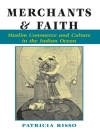Typically we think of power as economic, political, or military, but fictional narratives attached to kings, empires, religious founders, and societies have been used to create and enhance power and authority since the beginning of civilization. Invented History, Fabricated Power presents evidence from cultures ancient and modern, Eastern and Western, to demonstrate that narrative extends well beyond literary works (plays, poems, epics, novels) where it is usually studied by literary specialists. At the same time, there is much to be learned about the power of narrative from literary analyses which are herein undertaken for a number of lesser known works: Ramayana, Mahabharata, Shahnameh, Sejarah Melayu, Negarakertagama and Kebra Nagast. As an imaginative endowment of humans, however, “narrative knowing” is a cognitive universal—the primary way we organize, remember, and communicate our experience and knowledge. It is, thus, a faculty susceptible to narratives that construct and enhance power for persons, kings, empires, societies, religions, and cultures.
The result of the book is a survey of narrative power in familiar Western cultures (Greek, Roman, Frankish, British), less familiar Asian cultures (Chinese, Indian, Japanese), and a number of lesser known cultures typically bypassed by historians (Persian, Ethiopian, Iroquois, Malaysian, Aztec). It also seems important to take a hard look at the Roman Church where a series of forgeries established papal power that persisted long after the forgeries were exposed. It also seems important to recognize that the Marxist economic analysis included an unlikely futuristic scenario that was corrupted by revolution and eventually failed. The astonishing Nazi ideology promulgated by Adolf Hitler was founded on fictional analyses of both “Aryans” and Jews but nevertheless inspired “willing executioners” to carry through the “final solution” of the Holocaust.
Eventually we consider our own consuming ideology, most notably the idealistic narrative of liberal democracy now available to only a fraction of the world population. We have come to recognize it is propped up by a desire for control, comfort, and consumption—a way of life that now endangers human survival as environmental degradation, resource depletion, earth-system overshoot, and global warming are undercutting its narrative assumptions.
Tabella dei contenuti
Introduction; Prologue: Prehistoric Spirits and Personal Power; Part One, Divine Kings, Devarajas, and Sons of Heaven; 1, Divine kingship in Mesopotamia; 2, Pharaohs among the Indestructibles; 3, Kingship among the Hebrews; 4, The Deification of Roman Emperors; 5, The Deva-rajas of India and Southeast Asia; 6, The Chinese Mandate from Heaven; 7, The Japanese Imperial Cult; Part Two, Kings and Empires Before the Common Era (BCE); 8, The Legendary Prehistory of the Sumerians; 9, Legendary Kings and Empires of Pre-Classical Greece; 10, Patriarchs, Exodus, and the Epic of Israel; 11, Legendary Kings and Empires of India; 12, The Aeneid and the Legendary Founding of Rome; Part Three, Narratives of Spiritual Founders; 13, Moses: Lawgiver and Founder of Israel; 14, Buddha and Legends of Previous Buddhas; 15, The Teacher of Righteousness and Savior Narratives; 16, Muhammad, the Qur’an, and Islamic Legends; 17, The Virgin Mary through the Centuries; 18, Tonantzin and Our Lady of Guadalupe; Part Four, Kings and Empires in the Common Era (CE); 19, Narrative Forgeries of the Holy Roman Empire; 20, Shahnameh: The Epic of Kings and Alexander the Great; 21, Charlemagne: Ancestral and Campaign Fictions; 22, The Fictional Kingdom of King Arthur; 23, Kebra Negast: Ethiopian Kings and the Ark of the Covenant; 24, Elizabeth I: Narratives of the Virgin Queen; Part Five, Social and Political Order since 1450; 25, Epics of the Portuguese Seaborne Empire; 26, Discovery: The European Narrative: of Power; 27 Dekanawida and the Iroquois Federation; 28, The New England Canaan of the Puritans; 39, Marx, Capitalism, and the Classless Society; 30, Adolf Hitler’s Narratives of Aryans and Jews; Epilogue: The Endangered Narrative of Liberal Democracy; Bibliography of Works Cited; Index.
Circa l’autore
Barry Wood has degrees from the universities of Toronto and British Columbia, and an interdisciplinary doctorate in English and American literature, humanities and religious studies from Stanford University. He teaches British and American literature at the University of Houston. His previous books include Malcolm Lowry: The Writer and His Critics.












